Parole!
Cast & Crew
Louis Friedlander
Henry Hunter
Ann Preston
Alan Dinehart
Alan Baxter
Alan Hale
Film Details
Technical Specs

Synopsis
In a state penitentiary on New Year's Eve, gangster "Okay" Percy Smith knifes fellow inmate Zingo Browning, killing him. The next day, convicted lawyers Russell Whalen and Marty Crawford plead their cases before the Parole Board. Russ is released on parole, while Marty is ordered to remain behind bars until Zingo's murder is solved. Marty is in prison for fixing a jury to save an innocent man, and when Russ is released, he arranges for Russ to work with his old law partner, Jack Driscoll. The twenty-four-year-old Russ was convicted of killing a man in a car accident and is eager to make good, but Driscoll assigns him to Richard K. Mallard, a crooked politician who believes in astrology and is the boss of the city graft machine. Okay, who was let out of prison when Mallard paid a woman to pose as Okay's fainting mother, takes Russ with him when he collects money from the businessmen whom Mallard controls. When Russ sees Okay nearly kill a man for refusing to give up his city contract to Mallard, he saves the man, then quits Mallard's service. Marty's daughter Frances then gets Russ a job with her boss, manufacturer Rex Gavin, who is spearheading an anti-parole campaign in an effort to fight the recent crime wave perpetrated by released convicts. Okay then robs a bank in order to pay Mallard's aide, John Borchard, for securing the release of Russ's friend, Bobby Freeman, from prison so Okay will have a scapegoat when he needs one. After Bobby goes to live with Russ, Marty is released from prison, and when Driscoll visits, Russ rails at him for associating with Mallard. Borchard then tells Gavin he has an ex-convict working for him, and Gavin fires not only Russ and Frances, but five other good workers who also happen to be ex-convicts. When Post Courier reporter Gregory interviews Russ about the Gavin Manufacturing Company dismissals, he reveals all he knows about Mallard's operation to paper chief Earl Bigbee. After headlines implicate Mallard, Driscoll offers Russ his apartment as a hiding place. Okay and Dummy Watts, who had also been in the state prison, then force Bobby to lead them to Russ. At Driscoll's apartment, Bobby and Russ struggle to keep out Okay and Dummy, but the thugs get the door open and shoot and kill Bobby. Marty is wounded trying to escape, and Russ is blamed for the shooting and is jailed after revealing Okay and Dummy's hideout to be a barge. At the barge, the police cuff Dummy and Okay, but Okay jumps into the water and is shot at as he swims away. Joyce Daniels, Mallard's secretary who is in love with Russ, then gives Frances the records needed to incriminate Mallard and free Russ. After she is abducted by Borchard and killed, Frances hands over the evidence to Gavin, who organizes the city leaders and the governor to investigate and try Mallard. Mallard is exposed as a grafter, and Russ is exonerated and meets with the authorities to discuss a revitalization of the state parole system. Mallard is indicted, but flees bench warrant by hiding out in the mortuary of A. R. Patton, where Bobby's body is interred. With Borchard, Mallard tries to escape to Rio de Janiero in Bobby's coffin, but Russ arrives with police inspector Hamilton, who shoots Borchard and arrests Mallard. Governor Slade then appoints the chair to a new parole board, which includes a psychiatrist, and Gavin agrees to help prepare criminals for jobs after parole. Slade pardons Marty and Russ, who can now marry Frances, and Mallard gets fifty years in prison. Russ and Marty look forward to a future as "Whalen and Crawford, Attorneys at Law."

Director
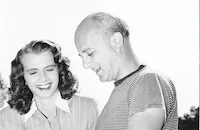
Louis Friedlander
Cast
Henry Hunter
Ann Preston

Alan Dinehart

Alan Baxter

Alan Hale
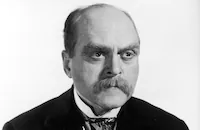
Grant Mitchell
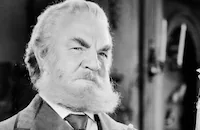
Berton Churchill
Noah Beery Jr.
Bernadene Hayes
Wallis Clark
John Miltern

Jonathan Hale
Frank Mills
Selmar Jackson
Clifford Jones

Anthony Quinn
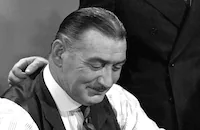
Edward Keane
Douglas Wood
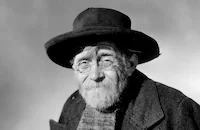
Christian Rub
Jack Kennedy
Frank Mcglynn Sr.
Tom Moore

Walter Miller
Thomas Curran
Ed Reinach
Arnold Gray
Lynton Brent
G. Pat Collins
Jack Daley
Budd Fine
Pat West
Hooper Atchley
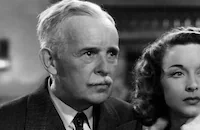
Howard C. Hickman
Landers Stevens
Zeffie Tilbury
Monte Montague
Harry Bernard
Harold Waldridge

John Hamilton
Fred Blanchard
Loren Rowell
Archdale J. Jones
Arthur Loft
Lee Kohlmar
Frank Hagney

William "billy" Gilbert
June Gittleson
Guy Usher
Ed Stanley
Treva Lawler
Lillian Lawrence
William Gould
Matt Mchugh
Don Brody
Tom Mcguire
Rollo Lloyd
Crew
Philip Cahn
Albert S. D'agostino
Robert Dillon
Robert Dillon
Bill Ely
Charles K. Freeman
Kubec Glasmon
Kubec Glasmon
Eve Greene
Moree Herring
Phil Karlstein
Joseph Lapis
Charles Maxwell
Horace Mccoy
Emily Moore
Kay Morris
Robert Presnell
Charles Previn
George Robinson
Ruby Rosenberg
Joel Sayre
Joel Sayre
Robert T. Shannon
Homer G. Tasker
Frank Wead

Film Details
Technical Specs

Quotes
Trivia
Notes
Although a print of this film was not viewed, the above credits and summary were taken from a studio cutting continuity and dialogue script. The working titles of the film were What Price Parole and Paroled. According to Film Daily, this was Universal's first production under the "regime" of Charles Rogers. Universal Cost Files at the USC Cinema-Television Library list "Shannon and Cohn" as contributing writers on this film. The credit May refer to writers Robert T. Shannon and Albert J. Cohen, who collaborated on other Universal films. According to a Hollywood Reporter news item on November 1, 1937, Charles Maxwell was the composer and arranger for part of this film's score. From the continuity of this film, it is not clear whether "Okay" is killed as he swims away or escapes. After "Okay" leaps into the water and is fired at, he exits the frame swimming, and the reel ends with a police officer firing at him in the background. After this scene, his character is no longer referred to in the script. Numerous reviews mention the timeliness of the film's topic. An ad in Motion Picture Herald, which asks, "Is parole merciful-or murderous?," includes clips of undated newspaper articles with headlines such as, "Weak Parole System and Reduced Pleas Held Factors Behind Murder." Among the newspapers cited are the New York World-Telegram, which states, "Recent crimes committed by men on parole indicate that the system is not working as a safeguard to society as had been intended," and the New York Evening Journal, which cites statistics of the U.S. Dept. of Justice Uniform Crime Reports that state that a criminal serving a life sentence averages only ten years behind bars, a convicted murderer, four years, and a criminal serving a ten-year sentence, one to three-and-a-half years. A Motion Picture Daily ad addresses J. Edgar Hoover: "You are the chief crook-catcher of the nation. You trapped Dillinger, Nelson...et al. But you're going to get your most tremendous kick out of Universal's 'Parole!'" Joseph Lapis is credited with sound in an early Hollywood Reporter production chart, but is not credited in the cutting continuity and receives no mention in reviews.

Miscellaneous Notes
Released in United States 1936
Released in United States 1936











